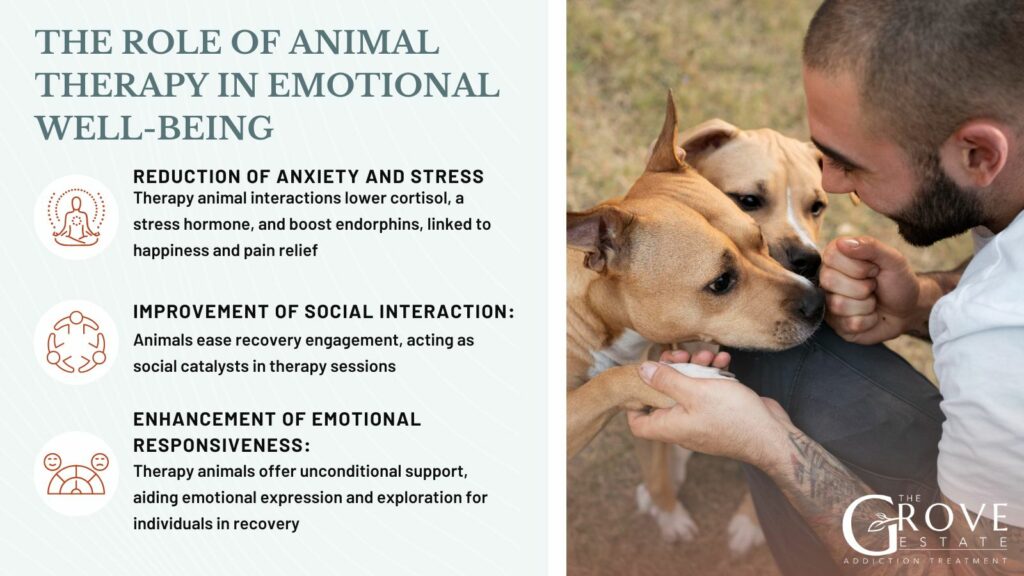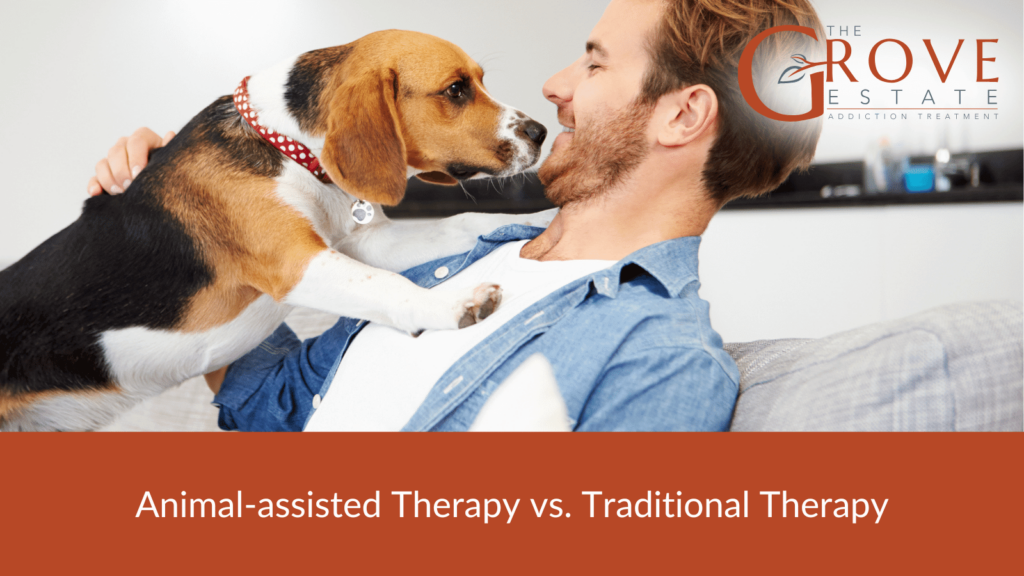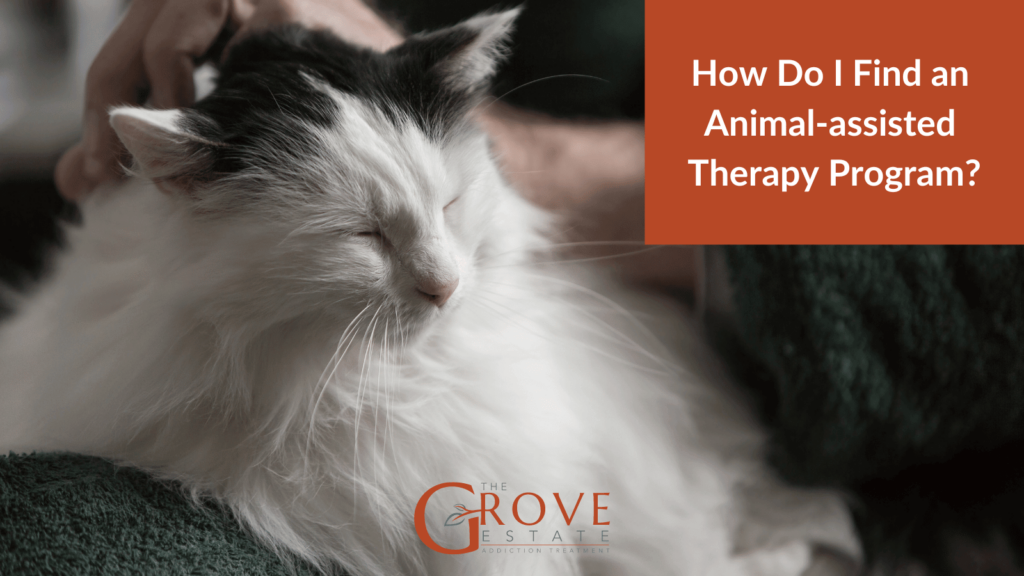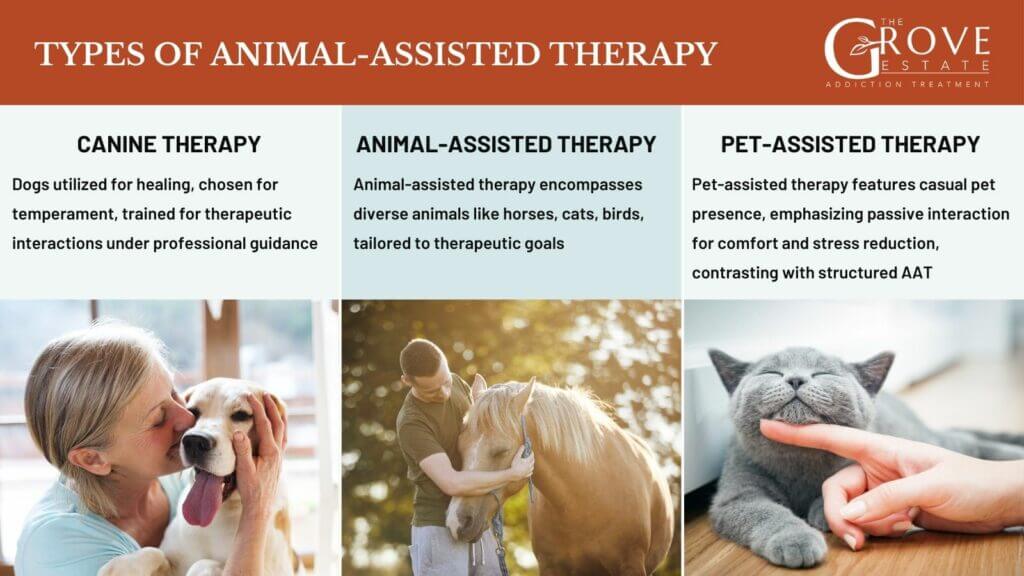Animal-assisted therapy (AAT) is emerging as a transformative tool in the field of addiction treatment, providing invaluable emotional support and enhancing traditional therapeutic approaches. The presence of animals has been found to promote a sense of calm, comfort, and companionship, which are essential for individuals struggling with substance use disorders. The positive impact of AAT on mood, motivation, and overall well-being has made it a widely sought-after and transformative tool in addiction recovery programs.
According to a study published in the Journal of Psychiatric Research, patients participating in AAT experienced marked improvements in psychological well-being and decreased feelings of isolation. Engagement with therapy animals has been linked to increased levels of oxytocin, a hormone associated with emotional bonding and stress reduction, which can be particularly beneficial in a rehab setting. The role of AAT in addiction treatment programs is becoming increasingly recognized for its profound ability to heal and transform lives.
What Is Animal Assisted Therapy?
Animal-assisted Therapy (AAT) is a therapeutic intervention that incorporates animals, such as dogs, horses, or even dolphins, into the treatment process to enhance emotional, cognitive, and social functioning. In the context of addiction treatment, AAT is used to support recovery by improving mood, reducing stress and anxiety, and providing a unique form of emotional support that differs from human interactions.
AAT involves structured and goal-oriented activities that facilitate an individual’s recovery from addiction. These activities are designed to promote improvement in human physical, social, emotional, or cognitive function. Therapy animals are trained to be calm and interact safely with individuals in various therapeutic settings, including rehab centers, hospitals, and private therapy sessions. Here is a list of different types of animal-assisted therapy:
- Canine Therapy: Specifically involves the use of dogs to promote health and healing. Dogs are chosen for their temperament and trained to engage in therapeutic interactions under the guidance of a health professional.
- Animal-assisted Therapy: A broader term that includes the use of various types of animals in therapy, not limited to dogs. This can include horses, cats, birds, and other animals, depending on the therapeutic goals of the program.
- Pet-Assisted Therapy: Typically involves the casual presence of pets and focuses on the benefits of passive interaction. Unlike AAT, which is more structured and directed by a professional, pet-assisted therapy may simply involve spending time with a pet to gain comfort and reduce stress.
Each type of therapy offers unique benefits and can be tailored to meet the specific emotional and therapeutic needs of individuals in addiction recovery.
What is The Role of Animal-assisted Therapy in Enhancing Emotional Well-Being?

Animal-assisted Therapy (AAT) plays a significant role in promoting emotional well-being, especially in the context of addiction recovery. This therapeutic approach leverages the unique bond between humans and animals to facilitate emotional healing and resilience. Here’s how animal-assisted therapy aids in emotional healing:
- Reduction of Anxiety and Stress: Interactions with therapy animals can reduce cortisol levels, a stress-related hormone, while simultaneously increasing endorphin levels, which are hormones associated with happiness and pain relief.
- Improvement of Social Interaction: Animals provide a non-threatening presence that can help individuals in recovery engage more openly in therapeutic sessions. They often act as social lubricants, easing communication among group members and therapists.
- Enhancement of Emotional Responsiveness: For those in recovery, expressing and understanding emotions can be challenging. Therapy animals provide unconditional support, which can help individuals feel safer expressing their feelings and exploring their emotional states.
The human-animal bond has been studied extensively for its therapeutic potential. This bond is rooted in our evolutionary history and is powered by the hormone oxytocin, which is released during positive interactions with animals. Oxytocin helps to lower blood pressure and heart rate, provides a sense of calm and focus, and increases feelings of trust and empathy. These effects are particularly beneficial for individuals recovering from addiction, who often struggle with trust, social connections, and emotional regulation.

How Does Animal-assisted Therapy Compare to Traditional Therapy Approaches in Addiction Treatment?
Animal-assisted therapy (AAT), particularly with canines, offers unique emotional support that complements traditional therapy methods in addiction treatment. Canine therapy introduces therapy dogs to create a calming environment that can alleviate anxiety and stress, enhancing the traditional therapeutic atmosphere. This contrasts with traditional methods like cognitive-behavioral therapy (CBT), which focuses on modifying dysfunctional thinking and behaviors, and medication-assisted treatment (MAT), which uses medications to manage withdrawal symptoms and reduce cravings.
Integrating canine therapy with traditional approaches like CBT, MAT, or group therapy can improve patient engagement and emotional openness. This holistic approach not only addresses the cognitive and behavioral aspects of addiction but also supports the emotional well-being of individuals, making the recovery process more comprehensive and effective.
How Does Animal-assisted Therapy Benefit Specific Groups Like Children and Adults?
Animal-assisted Therapy (AAT) offers tailored benefits for distinct demographic groups such as children of addicted parents and adults in recovery, addressing their unique emotional and therapeutic needs.
Importance and Customization for Different Groups
- Children of Addicted Parents: AAT provides a comforting, non-judgmental presence that helps reduce anxiety and stress, enhancing security and emotional expression. Therapy sessions for children are designed to be engaging and educational, incorporating activities like grooming or feeding animals to teach responsibility, empathy, and emotional recognition.
- Adults in Recovery: For adults, AAT facilitates deeper emotional connections and support. It aids in reducing feelings of isolation and building trust, with activities focused on care and interaction with animals to promote relaxation and openness during therapy sessions. This approach helps adults tackle issues related to their addiction and fosters essential social skills.
By adapting AAT to fit the specific emotional and developmental needs of both children and adults, the therapy becomes more effective, enhancing traditional treatments and providing a unique avenue for emotional healing and recovery.
What are the Challenges and Considerations in Animal-assisted Therapy?
Animal-assisted Therapy (AAT) presents several challenges and ethical considerations that need careful management to ensure the effectiveness and integrity of the therapy:
- Allergies and Fears: Screening for allergies or phobias related to animals is essential to accommodate all participants and provide alternative treatments when necessary.
- Animal Behavior: Regular training and behavior assessments are crucial to maintain safe interactions, ensuring that therapy animals exhibit calm and non-aggressive behaviors at all times.
- Animal Welfare: Therapy animals must be well-cared for, receiving adequate rest and maintaining a healthy environment. Their workload should be managed to prevent stress or burnout.
- Ethical Treatment: It’s vital to monitor the health and well-being of therapy animals continuously. Ethical practices require that animals participate voluntarily and are retired comfortably when they no longer adapt to their roles.

How Do I Find an Animal-assisted Therapy Program?
To find a suitable Animal-assisted Therapy (AAT) program, particularly one that includes canine therapy in addiction treatment centers, start by researching online to identify centers that offer these services. Contacting local mental health organizations or veterinary associations can also provide reliable referrals. Additionally, consult healthcare providers or therapists who might have recommendations. When evaluating potential programs, ask about the qualifications of the handlers, the welfare of the animals involved, and the specific therapeutic approaches used. Inquire about the program’s success rates and request testimonials or case studies to ensure the efficacy and safety of the therapy offered.
What types of animals are typically used in Animal-assisted therapy?

Common animals used in AAT include dogs, cats, horses, rabbits, and even birds, with each species offering unique therapeutic benefits based on the goals of the therapy session.
Are there specific qualifications or training required for animals involved in Animal-assisted therapy?
Yes, animals used in AAT must undergo specialized training and certification to ensure they are well-behaved, trained to work with therapists, and capable of providing safe and effective therapeutic interactions.
What conditions or issues can Animal-assisted therapy help address?
AAT can benefit individuals with a wide range of conditions, including anxiety disorders, depression, PTSD, autism spectrum disorder, substance use disorders, and other mental health challenges.
How can animal-assisted therapy enhance the treatment experience for individuals with dual diagnosis?
Animal-assisted therapy (AAT) is particularly impactful for individuals with a dual diagnosis, dealing with both substance use disorders and mental health conditions such as depression or anxiety. According to a study from the National Center for Biotechnology Information, the presence of therapy animals can help mitigate symptoms of anxiety and depression, common in dual diagnosis, by providing a calming influence and a non-judgmental presence that fosters emotional safety.
Incorporating AAT into the broader treatment plan, which might include adventure therapy for addiction, can lead to a more holistic recovery process. Animals offer a unique form of support that complements traditional therapeutic methods, helping individuals open up and engage more fully in their treatment. The added emotional support from therapy animals can encourage persistence in recovery, even during challenging phases.
What role does animal-assisted therapy play in preventing relapse in addiction treatment?
The incorporation of animal-assisted therapy into addiction treatment programs plays a significant role in relapse prevention. Engaging with therapy animals has been shown to help reduce stress and improve emotional regulation, critical factors in maintaining sobriety. A recent study highlighted that interactions with animals could significantly boost mood and motivation, which are essential for individuals in recovery to remain engaged in their treatment programs and avoid relapse.
Furthermore, integrating AAT with individual counseling can deepen the therapeutic impact, providing a dual approach to address emotional and psychological needs. The non-verbal communication and unconditional acceptance offered by therapy animals can enhance the therapeutic environment, making it more conducive to recovery and long-term sobriety.

Share This Post



